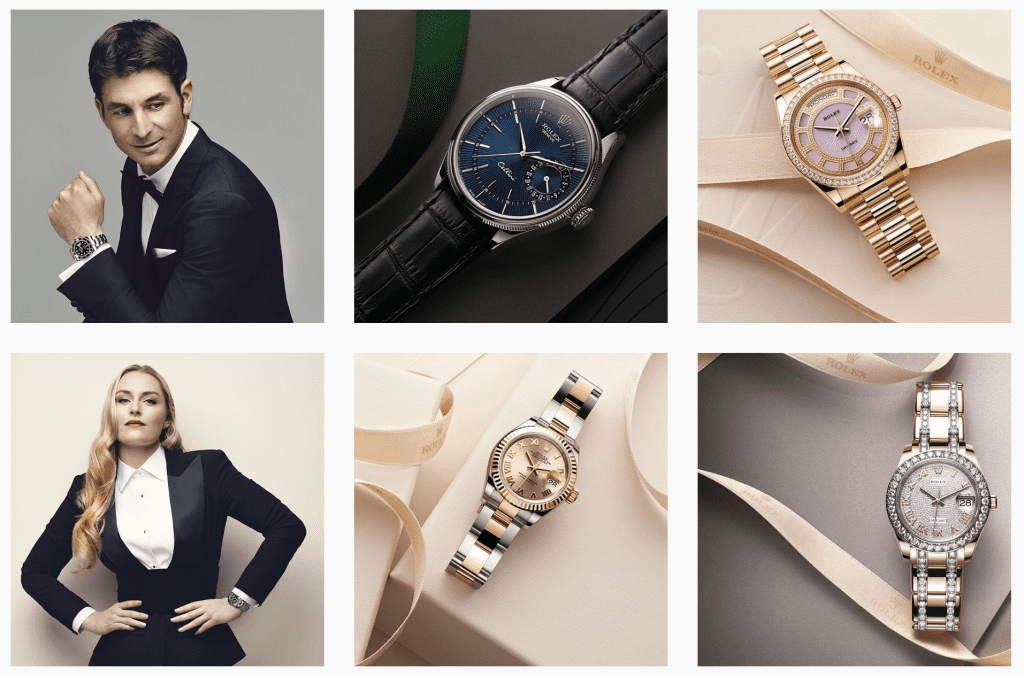In 2011, Rolex sued an unlikely defendant, a Brooklyn-based deli going by the name of Rolex Deli. According to Rolex, the sandwich shop’s name could cause confusion amongst consumers, who might believe that it was connected to or endorsed the deli. Rolex sued the same deli again two years later after its name change to Roll-x Deli left the Swiss watchmaker unsatisfied. The two parties ultimately settled the case out of court and have managed to stay out of court since.
Rolex, however, is back on the litigation tear, this time filing suit against a Texas-based company bearing a similar name. The 113-year old luxury watchmaker alleges in its suit, which was filed in a federal court in Texas this week, Rolex Health is running afoul of the law by using Rolex’s trademark-protected name in connection with “a website to promote and sell goods and services related to healthcare including, medical supplies, home healthcare products and services, vitamins and supplements.”
In a cease and desist letter that Rolex’s legal counsel sent to the owner/operator of the RolexHealth website in October, Rolex demanded that “Rolex Health: (a) consent to the immediate transfer of the www.rolexhealth.com domain name to Rolex; (b) refrain from using the ROLEX trademark in any manner that would violate Rolex’s trademark rights; (c) and change the company name with the Texas Secretary of State.” In response to the latter, RolexHealth’s owner, Jignashu Bodawala, refused to commit to Rolex’s demands and “suggested that, perhaps, coexistence was possible.”
In a subsequent letter, Bodawala again refused to comply with Rolex’s demands, including transferring the domain or “change the company’s business name unless remunerated in an unspecified manner.”
Rolex claims that Bodawala’s use of its name not only gives “the false and misleading impression that [he] is sanctioned, licensed or otherwise authorized by Rolex to provide healthcare products and services,” it is particularly egregious due to Rolex’s “long and continuous use of the ROLEX trademark” and the “outstanding reputation and the attendant goodwill associated with its products and services” it has developed.
Still yet, Rolex asserts that the infringement at hand is particularly egregious because the “ROLEX trademark has no meaning in the English language.” Instead, “Its only meaning is exclusively associated with Rolex, its products and its services.” As such, Bodawala’s use of the name is based exclusively on his “intent to profit and benefit from the prestige associated with the ROLEX trademark and the good will associated with Rolex’s luxury products and services.”
As a result of Bodawala’s use of the Rolex trademark – even if it is on a different category of goods/services than what Rolex uses its trademark for – and his “bad faith intent to profit from the ROLEX trademark and the goodwill associated with it,” Rolex sets forth claims of trademark infringement and dilution, unfair competition, and cybersquatting, the latter of which refers to the “bad faith” registration of a domain name.
Rolex is seeking an array of monetary damages and injunctive relief, which would immediately and permanently bar Bodawala’s use of the Rolex trademark or any similar marks. To be exact, Rolex wants the court to issue an order requiring that “within ten days of judgement, [Bodawala be forced to] transfer the www.rolexhealth.com domain name to Rolex and change its business name with the Texas Secretary of State.”
What is really going on here, since there is little likelihood that consumers would believe that a Swiss-based luxury matchmaker is associated with a Texas-based health company, thereby making the likelihood of success for any infringement claims slim? Chances are, this is just the latest example of a carefully crafted and maintained luxury brand attempting to exert control over all aspects of the market. This is not an uncommon tactic. Chanel, for instance, filed suit against an Indiana-based woman, who was operating a spa called Chanel’s Salon, asserting many of the same claims as Rolex. Before that, Christian Dior threatened to file suit against Australian photographer, Sirous Dior if he kept using his name in connection with his business. Burberry, on the other hand, filed suit against rapper, Burberry Perry, for using its name.
Speaking strictly from a legal perspective, such suits make since, as it is the trademark holder’s duty to police unauthorized uses of its trademarks, and in fact, the protection of their marks is one of the main ways to ensure that such protection endures – potentially forever – since trademark protection is not limited in duration like other forms of intellectual property.
Considering the concerns of luxury fashion brands, in particular, the suit makes even more sense. Luxury-level brands tend to have more to lose if their names become widely used without their authorization. This is due in large part to the fact that these brands have spent exorbitant amounts of resources (in marketing, legal fees, etc.), and many, many decades, and in some cases, even centuries building up their names (and thus, their trademarks). Moreover, the status of their trademarks is also significant because their ability to charge the premium prices they do depends on the esteem and goodwill associated with their trademarks, which is based on elements, such as exclusivity and positive consumer perception.
As for whether many of the suits that have been filed over the years, including the one at hand, are aggressive and arguably unnecessary, that is very much up for dedate.
*The case is ROLEX WATCH U.S.A., INC., v. ROLEX HEALTH, INC., 2:18-cv-00538-JRG (E.D.T.X.).














